Bringing a new life into the world comes with countless emotions—joy, excitement, and hope for the future. But when a baby is born with a birth defect, those emotions can become overshadowed by worry, uncertainty, and an overwhelming number of questions. For new parents, especially those in regions such as Greenwich, Westchester, and NYC, having access to accurate information, compassionate guidance, and professional support can make all the difference in navigating the road ahead.
Understanding Birth Defects
What Are Birth Defects?
A birth defect is a structural or functional abnormality present at birth that can affect nearly any part of the body. Birth defects range from mild to severe, impacting a baby’s physical, mental, or emotional development. Some common examples include cleft lip, heart defects, Down syndrome, and spina bifida.
Each year, about 1 in 33 babies born in the United States is affected by a birth defect, according to the CDC. While birth defects can occur across communities and demographics, understanding their origins and potential risk factors can help parents make informed decisions for their child’s well-being.
Reasons for Birth Defects
There is no singular cause for birth defects, as they stem from a variety of factors. Some birth defects are genetic, inherited through family DNA, while others arise from environmental influences or complications during pregnancy. Below are the main contributors to newborn birth defects:
- Genetic Factors: Conditions caused by changes in an individual’s chromosomes or specific genes, such as cystic fibrosis or Down syndrome.
- Environmental Factors: External influences like exposure to harmful substances (alcohol, certain medications, or tobacco) during pregnancy. These can disrupt normal fetal development.
- Maternal Health Conditions: Chronic illnesses, infections, or nutrient deficiencies—a lack of folic acid, for example, has been linked to neural tube defects.
- Unknown Causes: Medicine and science have not yet identified the cause of all birth defects, leaving some cases unexplained.
What to Do When a Baby Is Born with a Birth Defect
1. Acknowledge and Process Your Feelings
It’s natural to feel a mix of emotions—shock, sadness, guilt, or fear—when learning about your child’s condition. Remember, these feelings do not make you a bad parent; they are part of a healing process. Allow yourself the space to grieve the challenges ahead while staying open to moments of joy and hope. Support groups or professional counseling can provide a safe space to process these emotions.
2. Seek Immediate Medical Care
The first step is to work closely with your baby’s healthcare providers. They will perform tests to determine the severity of the condition and discuss actionable next steps. Having a trusted pediatrician, specialists, or neonatologists on your care team ensures your baby receives the early interventions they may need.
Some birth defects may be treatable through surgery or therapy, while others will require lifelong management. It’s important to work collaboratively with medical professionals to establish the best path forward.
3. Educate Yourself About the Birth Defect
Knowledge is power. Dedicate time to understanding your child’s condition by reading trusted medical resources or talking to your healthcare team. Questions to ask include:
- What are the immediate and long-term implications of this condition?
- What treatments or interventions are available?
- How can I provide the best care for my baby at home?
Parents who are informed about their baby’s diagnosis are more empowered to advocate for their child in medical and social settings.
4. Build a Support Network
Having a strong support system is critical when raising a child with a birth defect. Reach out to family, friends, and local organizations to surround yourself with individuals who understand your situation. For families in Greenwich, Westchester, and NYC, there are community resources specifically aimed at connecting you with other parents of children with birth defects.
Additionally, professional doula services like those offered by Northeast Doulas can provide unparalleled in-home emotional and practical support for new mothers navigating unexpected challenges in the postpartum period.
5. Advocate for Your Child’s Needs
From accessing early intervention services to securing special education resources, advocating for your child ensures they gain the tools needed to thrive. Familiarize yourself with local and state-level programs that provide assistance to families dealing with developmental challenges.
6. Prioritize Self-Care
Caring for a child born with a birth defect can be emotionally and physically taxing. Don’t neglect your own health and well-being. Schedule time for activities that bring you joy, and consider joining support communities or enlisting the help of a doula to lighten your parenting load.
How Northeast Doulas Supports Families When a Baby Is Born with a Birth Defect
Navigating the complexities of parenthood can feel daunting, but you don’t have to face this alone. Northeast Doulas provides unparalleled support for families throughout Greenwich, Westchester, and NYC. With an aim toward easing the postpartum transition, we offer a range of services designed to meet your unique needs.
- Practical Care: Assistance with day-to-day tasks like feeding, diapering, and organizing your baby’s care supplies.
- Postpartum Emotional Support: A listening ear to help you process your emotions, answer questions about your baby’s diagnosis, or simply offer guidance on what to expect as a parent.
- Access to Resources: Connect with local specialists, therapists, and community groups tailored to supporting children born with birth defects.
With our guidance, families can reduce feelings of isolation and focus on creating a loving, nurturing environment for their child.
Finding Hope and Moving Forward
Bringing a baby with a birth defect into the world may alter your expectations, but it shouldn’t diminish the love, joy, and fulfillment your baby will bring to your life. Challenges will arise, but so will moments of triumph.
By educating yourself, connecting with a support network, and accessing professional resources, such as Northeast Doulas, you can ensure your baby develops in a nurturing and supportive environment. We are here to walk beside you, offering expert care for you and your little one.
For families ready to explore personalized support tailored to their unique needs, contact Northeast Doulas today



